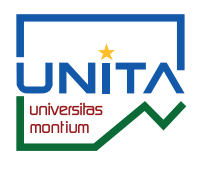13 projects from universities belonging to the UNITA Alliance were entered for this second Innovation Prize. Four of them were awarded prizes, and first place went to the ‘Invasive to valuable’ project, from the USMB's EDYTEM laboratory.
The project takes an innovative approach to the ecological threat posed by invasive Japanese knotweed, using an environmentally friendly extraction process that not only offers a sustainable solution to combating this invasive species, but also turns a major environmental problem into an economic opportunity. The approach is unique because of its minimal impact on the environment, unlike traditional extraction methods which often rely on harmful solvents, and not only helps to preserve biodiversity, but also opens up new avenues in the industry (nutrition in particular) by providing high-quality eco-sourced ingredients.
Second place went to the MECAPEAU project, the result of research carried out at the Université de Pau et des Pays de l'Adour. Its aim is to create an instrument dedicated to monitoring the mechanical properties of human skin samples ex vivo and any changes they undergo as a result of various external stresses.
The third prize was awarded to two projects, both of which tied for first place. One was Heritdig_Pyrénées, from the Universities of Pau and the Pays de l'Adour and Zaragoza (Spain). It focuses on digital representation for the virtual dissemination of works of architectural, artistic and cultural heritage in the Pyrenees. The aim is to approach the management of historical and artistic heritage as an interdisciplinary practice, in which new technologies prove to be fundamental resources in areas such as documentation, preservation and dissemination.
Finally, the other project is ParaHealth, a strat-up from the University of Beira Interiror (Portugal). It has developed a medical device that aims to improve the medical procedure of paracentesis, by ensuring safer fixation of the catheter system. By combining the concepts of medicine and reusable materials, they have designed a device that also makes it easy to replace each individual part if one becomes damaged or infected, without having to replace the whole device, thereby reducing hospital expenditure and enabling better waste management.
Do you have an innovative project to share? Don't miss the next and final edition of the Innovation Prize, which will take place in the first half of 2024! More information to come.
*Re-UNITA is a project funded by the European Union's Horizon 2020 programme.

_crop500x700_crop500x700.png?objectId=defaultWebContent://dcba276d-6045-4f0c-8b2c-5e214e65d6a7)